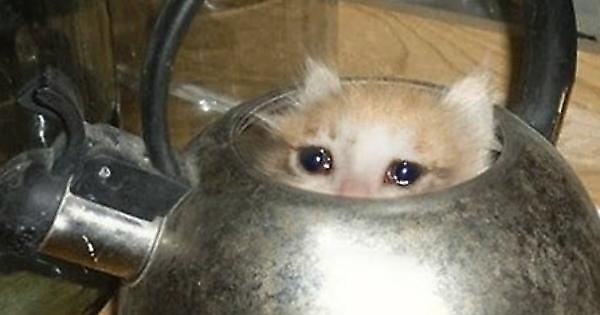
“There has been a good deal of ‘POT AND KETTLE’ in the stories from the British and Boer camps since the war began,” the Western Gazette, an English newspaper, reported during the country’s 1900 campaign in South Africa. In their sociology textbook Making Sense of the Social World, authors Barbara Scott and Mary Ann Schwartz echo this concern: They cite “the pot calling the kettle black” as an example of “symbolic terminology” smuggling in “negative ideas about individuals and groups.” And perhaps it doesn’t help that, historically, the saying has turned up in racially freighted situations. If there were no stigma attached to blackness, or if a silver pot were remarking on the complexion of a silver kettle, the observation wouldn’t boil over into accusation. The saying only works, he pointed out, because at least one of the pieces of kitchen equipment perceives blackness as undesirable. This question came up when a Slate writer hesitated to use the idiom because he worried about the way the pot cast “black” as a negative attribute.

We are here to talk about why reasonable people have been known to flinch from the phrase’s undertones: Could it be racist? A leaf that makes fun of another leaf for shriveling and falling off a bough.īut we have not convened a court to assess whether the kettle and the kettle’s friends should be outraged by the pot’s hypocrisy (or even whether the epithet “burnt-arse” is inherently insulting). Other sanctimonious metalware sightings: A 1639 collection of proverbs by John Clarke offers a more colorful variant on Cervantes: “ The pot calls the pan burnt-arse.” And in his 1922 gleaning of international folk sayings, Dwight Edwards Marvin links our sooty pot and kettle to a constellation of related grimy appliances from France (“the saucepan laughs at the pipkin”), Russia (“the shovel insults the poker”), and Ireland (“the kiln calls the oven ‘Burnt House’”).* There is also, Marvin writes, a Bengalese sieve that scoffs at a needle for “having a hole in your tail.” A vulture that mocks a civet cat for smelling bad. Thomas Shelton’s 1620 translation of Don Quixote contained the line, “You are like what is said that the frying-pan said to the kettle, ‘Avant, black-browes.’ ” And in 1693, William Penn, father of Pennsylvania, wrote that “for a Covetous Man to inveigh against Prodigality … is for the Pot to call the Kettle black.” (Earlier, Shakespeare approached the same idea in Troilus and Cressida, when a character protests, “The raven chides blackness.” There is also a long history of parables and adages that attack hypocrisy more generally, such as the Greek myth of the two sideways-scuttling crabs and the Biblical injunction not to “beholdest thou the mote that is in thy brother’s eye” without considering “the beam that is in thine own.”) This saying, which personifies kitchenware in order to make a point about hypocrisy, means “to criticize someone for a fault you also possess.” Per WiseGeek, the phrase dates back to the early 1600s, when most pots and kettles were fashioned from cast iron, a material that acquires streaks of black smoke when heated over a flame. Today’s idiom: “the pot calling the kettle black.” Welcome to Lexicon Valley’s new feature, “Is That Kosher?” A fuller linguistic arsenal leads to richer, chewier, more diverse expression-but when is the usefulness of a piece of language outweighed by the pain it causes? In “Is That Kosher?” we’ll reflect on certain words or phrases that lie in the margins of acceptability.


 0 kommentar(er)
0 kommentar(er)
